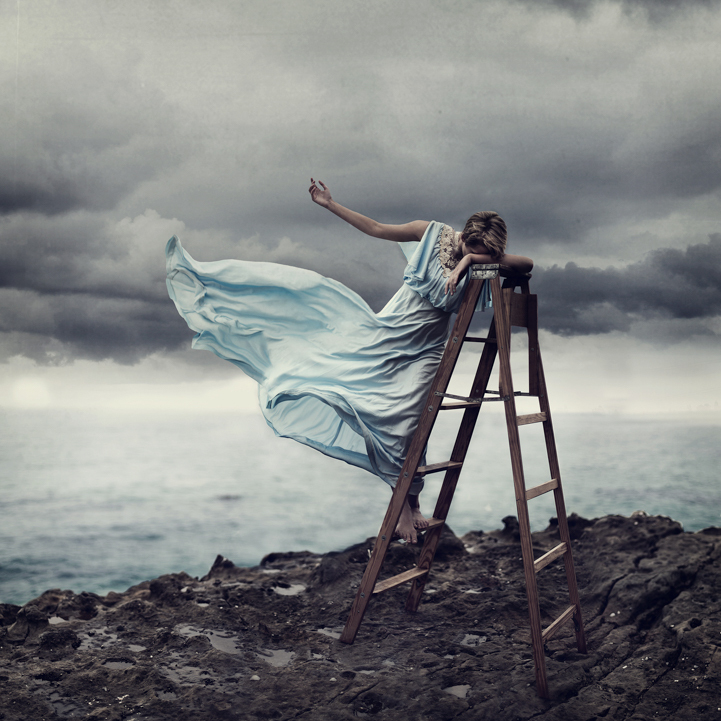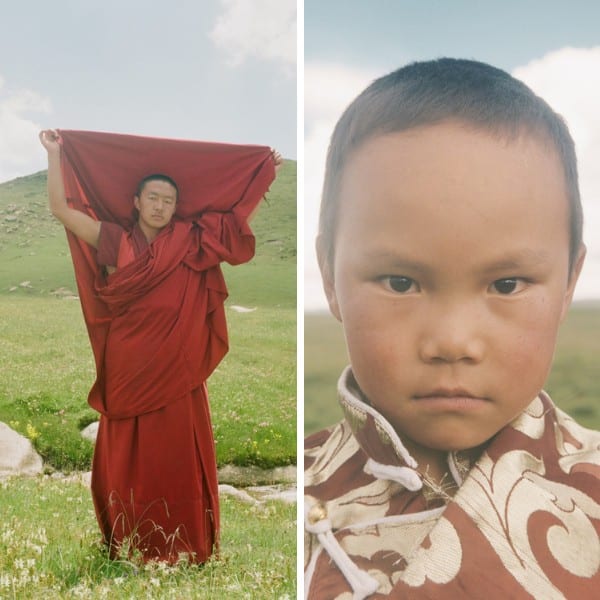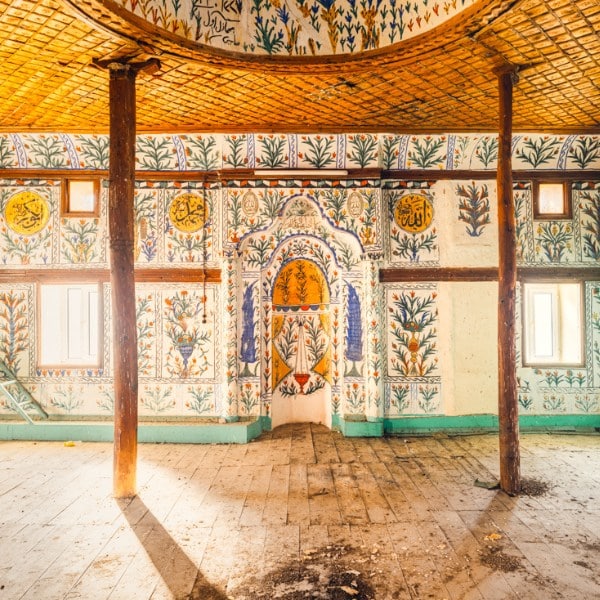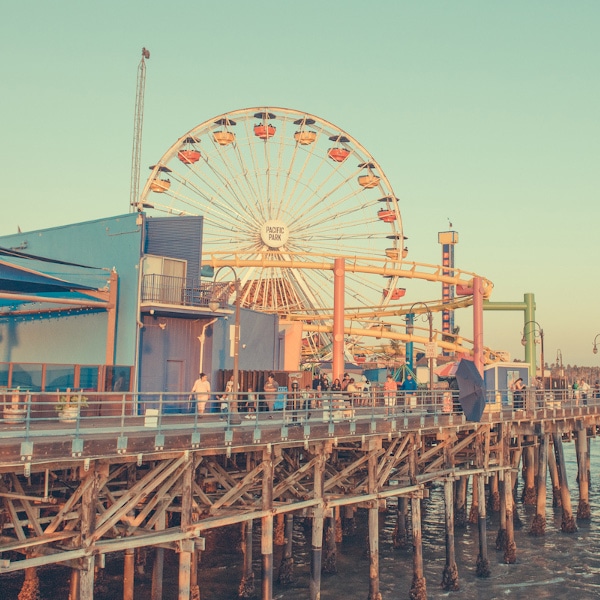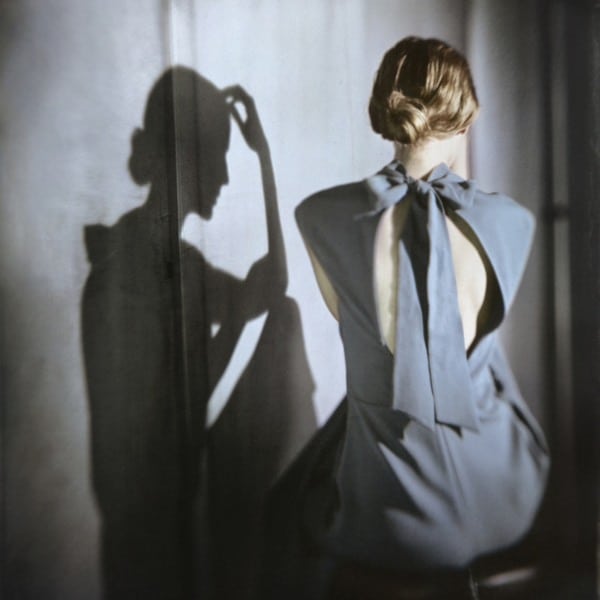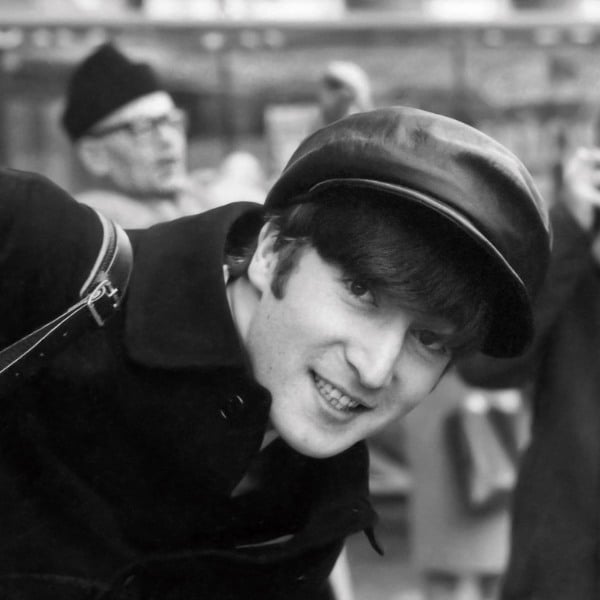If you've ever met David Talley, you know that the first thing that strikes you is his endless joy and positivity, even in the face of seemingly insurmountable adversity. So filled with passion and the desire to make a difference, there is nothing that can get this young photographer down and this quality of character shines through in a body of work that he describes as “the darkest moment before an explosion of light.” Through use of movement, moody atmosphere, and conceptual storytelling, David is able to translate real-life emotions into beautifully surreal photographs that help to leave a positive impact. David is able to capture the vulnerability of emotion in a single moment so perfectly that each photo is something each of us as humans can relate to.
Based in Portland, Oregon, David uses the Pacific Northwest's vast array of landscapes as backdrops for shooting. From the ocean and waterfalls to deserts and industrial studios, he is able to transform each location into a story rich with visual emotion. Inspired by his love of adventure, he has turned his passion into a career that allows him to travel the world, hosting workshops and instilling his uplifting outlook in everyone he meets.
We've featured David's stunning creative photography on My Modern Met in the past, and we were lucky enough to recently catch up with him for an in-depth Behind The Lens look into his creative process!
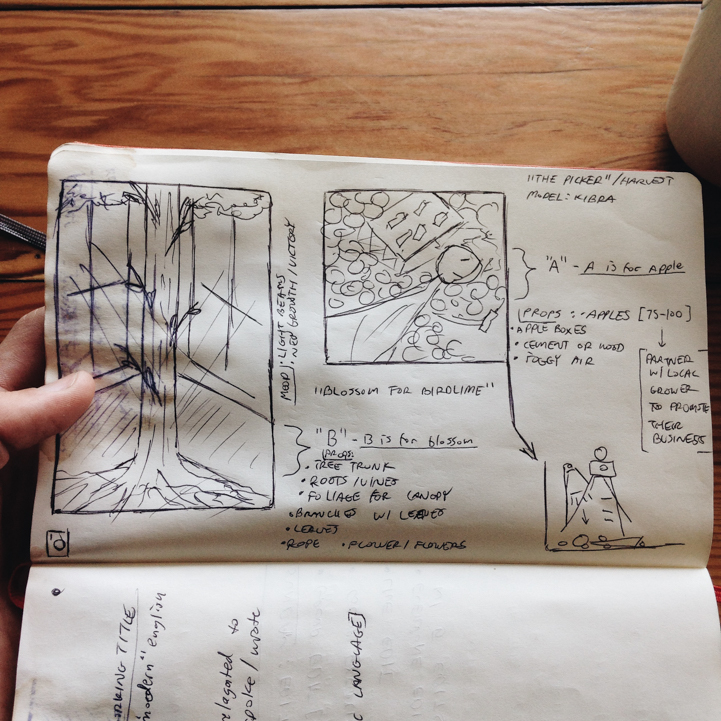
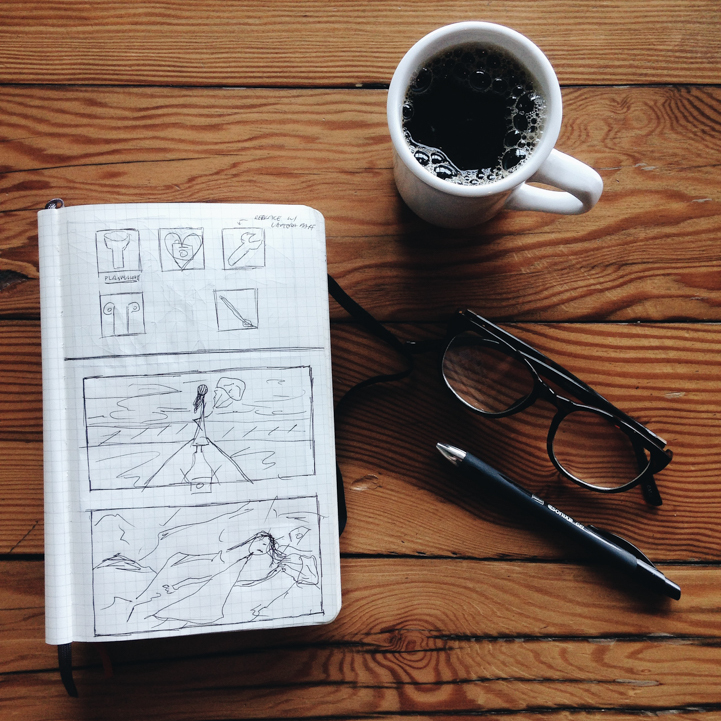
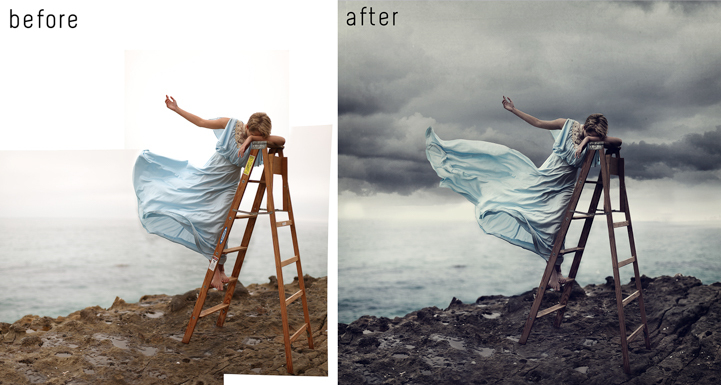
Tell us a bit about your journey into photography?
Sure! It all started on top of a seven-ply bamboo slab, attached to a few (four) wheels, carving my way down the mountainous hills of SoCal, USA. My first love was longboarding – a passion fostered in the heart of every high school kid growing up in the foothills of Southern California. I followed a popular longboarding company at the time, who produced these mind-bending photos of their team skating down hills. I loved it, and wanted to be just like them. Inspired, I saved up my summer earnings from a job with my uncle and purchased a DSLR. Six months into my new-ownership of a sweet camera, I found Alex Stoddard and his then half-complete 365 project, taking one photo a day for 365 days, characterized by beautiful self-portraits with deep, intense, and emotional storylines. At that moment, I saw photography as something more than I could imagine, and began my very own 365 project, which propelled me into the life I know today.
What are some of your interests?
That's a really good question, what are my interests? I live in Portland, so by nature, I'm a super active person. I love hiking, biking, running, and jumping into freezing cold water whenever I get the chance. I'm currently re-watching the TV Series “Lost,” and hoping that I can be as cool as Sawyer one day. I like building things, playing music, and I cook a mean Avocado-Egg-Toast, a delicacy taught to me by my Australian girlfriend. Can cleaning be a hobby? Longboarding was my first love, but I don't own a board anymore. If any of you have the 2008 Model of the Loaded Dervish, mine snapped, so I'm in the market.
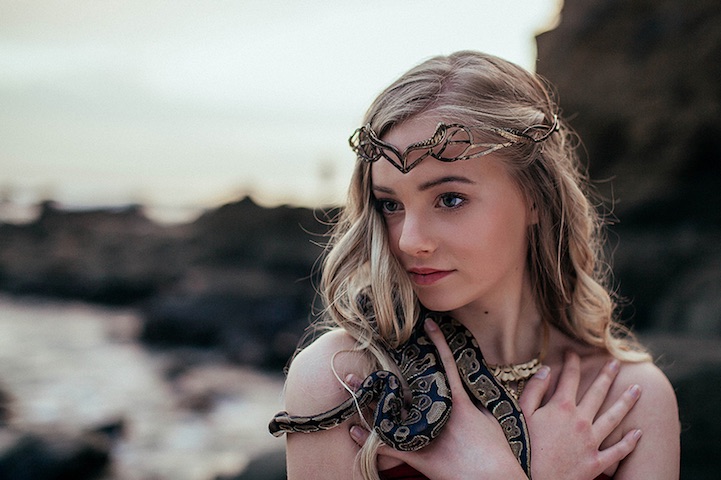
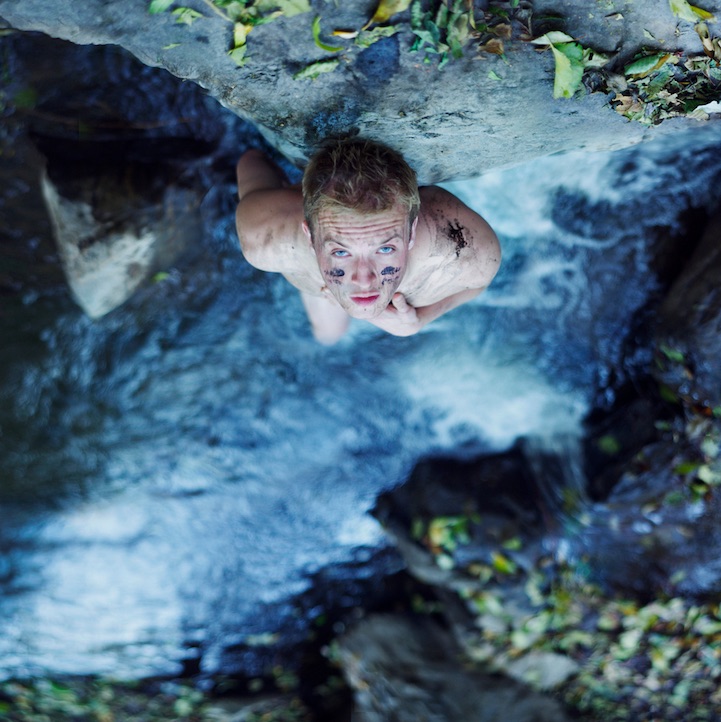
What keeps you inspired?
This is a really good one. Whenever I come across this question, it forces me to think about why I create. I'm really inspired by mystery, romance, heroism, adventure, and transcendence that I translate from real-life emotions and experiences into whimsical imagery. I used to create my best imagery whenever I was experiencing rough emotional turmoil. After a few years of maturity, I still enjoy creating that way (try it – it's incredibly cathartic), but it is not my ordinary mode of creation. I draw upon the theories and ideas of people and situations throughout the world, and offer a realistic view of the emotion and story encapsulated there. My goal is to transform dark, painful situations into positive, light-filled experiences, and I try to highlight that through capturing emotionally intense moments in my character's journeys – emotions identifiable to the whole of humanity.
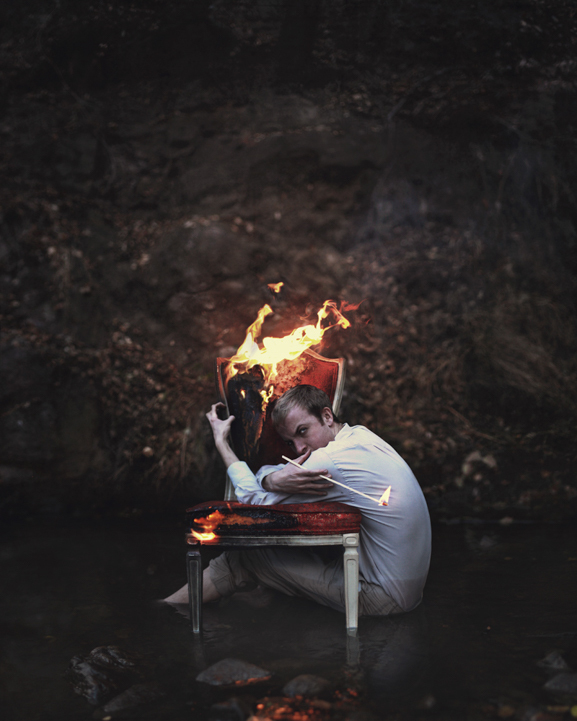
What was the first photograph that really made you proud to be a photographer?
Looking through my early work, I'd have to say that this image reflects the first time I was proud of myself as a photographer. Honestly, it's not very technically sound or original, but it captured a beautiful moment, where I was able to exhibit emotion and story in one image to create an impactful, beautiful piece. After creating this image, I decided that I wanted to pursue photography in every aspect of my life. Things clicked.
Take us through a typical day of shooting.
Well, it's always a full day. I'm awake around 6:30 AM every morning, do some reading, and go for a jog. Then, after I'm done pretending I have my life together like a normal adult, I scramble to make sure my team is assembled, my props are in place, and the lighting is perfect. I'll gather up my team, head out to the location, wait for the perfect light while my model has hair and makeup work done, shoot for around forty five minutes, and then go out to dinner with my team. We have a timeline and a shot list, and we try to stick to it. I want to make art creation a positive experience for myself and those around me. More recently, I was kicked off of my shooting location because it was so near to a cliff edge that people were falling off. When stuff like that happens and we get kicked off a shoot, we just go grab dinner and enjoy our evening regardless. Don't ever let anything stop you from creating.
What challenges have you faced while creating?
Wanting to create with things I don't have access to. It's like this: A painter has a completely blank canvas to fill with anything they can imagine. The 2-Dimensional nature of their practice enables them to put things like space-ships on giraffes into their work. For a photographer, we're limited by the tangible reality of the 3-Dimensional world that we photograph. Don't get me wrong – I love the realistic nature of photography. It's why I chose this art form. It's the spontaneity and reality of a human subject in a fantastical sur-reality. Just know that I envy all of you painters out there.
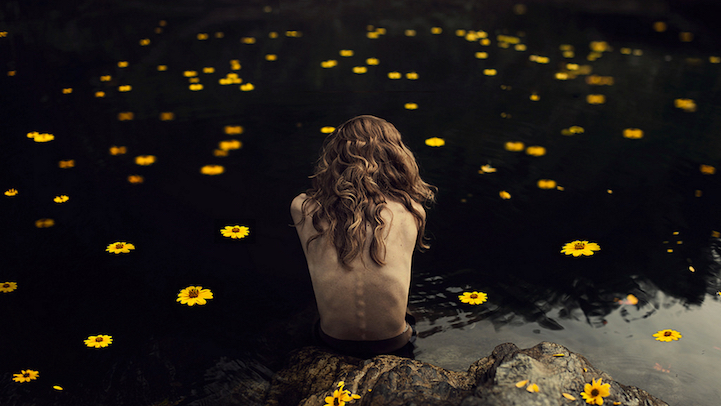
What is your favorite shooting location?
Forests and industrial factories. If I could put a forest in an industrial factory, you'd have the perfect shooting spot, and I'd run a monopoly on it's entrance. A free monopoly, of course.
What's a must have in your gear bag?
This one is going to sound weird, but it's not a photography related piece of equipment. It's called a Utili-Key, and it's made by Swiss-Tech. My girlfriend recently gifted me one, and it's the most versatile piece of gear that I use on set. Essentially, it's a multi-tool that looks and folds into the shape of a key, and can hang from your key ring, but has 3 screw drivers, a bottle opener, pliers, and a knife. Absolutely irreplaceable on set when I'm in a bind, hanging things from trees or cutting things apart. Love it.
How much post processing goes into a completed photo?
It depends on the vision of the photo. I'm at a place now with my work where post-processing isn't much of an issue. It just solidifies everything. I'm beginning to look at the process more like retouching, getting rid of things I don't want, cleaning up, but I usually don't add much to the photograph anymore. I used to have a lot of mind-tricks in my photos, but I've settled for a more documentary-style approach to my storytelling, although my work is far from anything documentary. I'd say I put in anywhere from three hours to an entire week on an image. It's more about deciding between 75% opacity and 74% opacity that racks that number up, honestly.
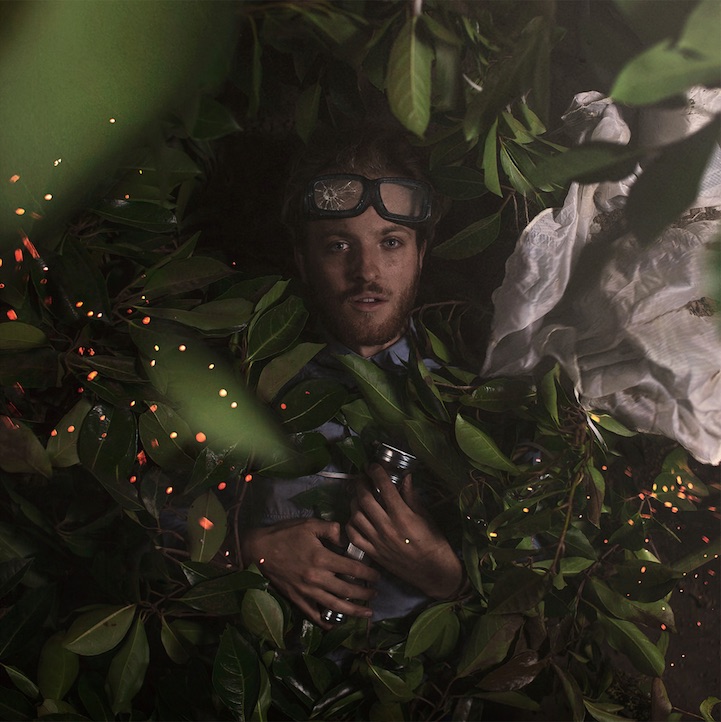
If you could define your style, what would you call it?
“The darkest moment before an explosion of light” is my tagline for the images I create. I think it falls under some sort of cinematic-conceptual genre, and I'm totally fine with that definition. I just want to tell stories, evoke emotion, and let people know they are not alone. There is a better life ahead.
What would be your dream location?
Falling through a real-life cloud on an almost-stormy day. I have plans to achieve this in the near future. Also, I've never been skydiving, so pray for me.
What are your plans for the future?
Currently, I'm looking forward to the rest of this year, to be spent traveling to nine different countries, three of which I will be teaching in. I'll be heading out this [past] August for an educational photography tour with three simple objectives:
- Help students create beautiful, emotional, and storyline-driven photographs and portraits through shooting, editing, and lighting techniques.
- Help students create and launch an effective, money-generating business built around the work they love to create.
- Help students create consistent work and build a social media following to utilize in spreading their gift to the world.
The workshop is a three-day course geared for both beginners and experts alike, with over thirty hours of instruction and insight into my process, including editing videos, access to exclusive .PSD layer files, Q&A sessions, portfolio assessments, group and solo exercises, model shooting time, editing time, and supplemental packages to launch photographers into the next part of their career. You can learn more about the workshops in Brazil, Italy, and India here.
After the workshop, I am looking forward to a new quarterly publication which is currently in pre-production. To stay up-to-date on the project, you can visit my blog at I'll be introducing some new characters in my work in 2016 that I'm really excited about.
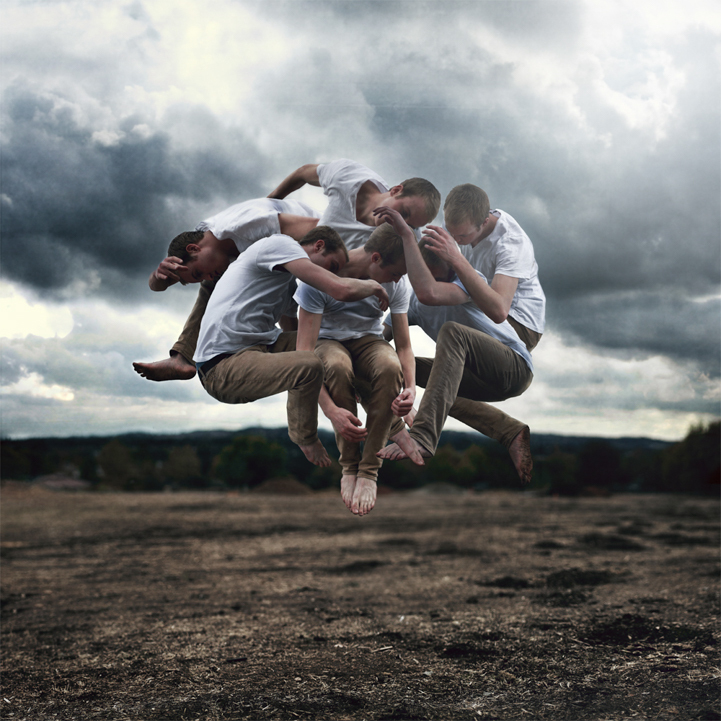
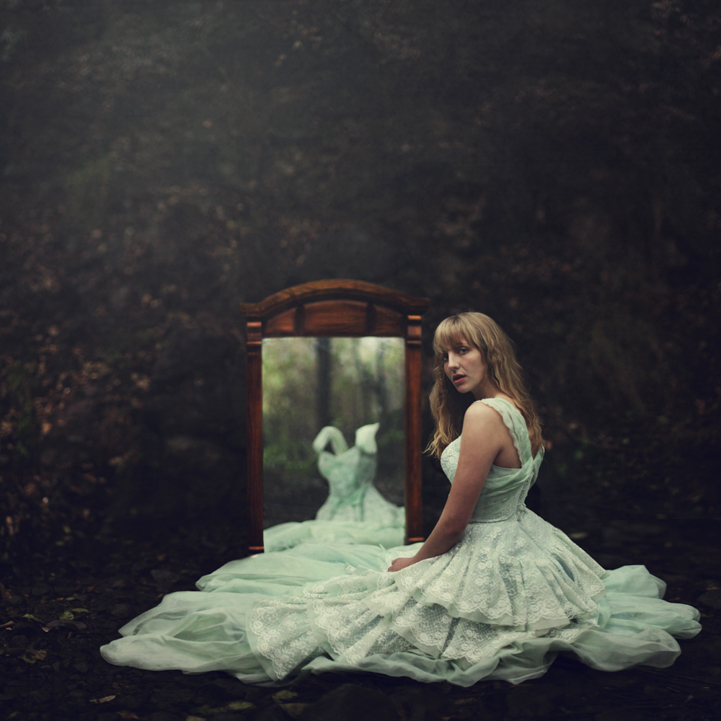
Can you tell us a bit about your Concept Collaboration project?
Totally! I love this project. I came to Flickr, the photo sharing website, a little over a year ago with an idea that had the potential to change the face of the photographic community forever. After a theft of $10,000 worth of camera gear in San Fransisco two springs ago, I found myself with an inability to create imagery, but a community that surrounded me with love and the necessary gear to put me back on my feet. Concept Collaboration was born out of the idea that we can utilize the community around us in the photography industry to help each other grow – to come together and push each other forward, instead of trying to compete with each other in an unhealthy manner. The mission for Concept Collaboration is simple: gather a group of photographers around the world over a single idea, and create that idea in different ways together. The tangible effects this has on community is beautiful.
Do you have any advice for aspiring photographers?
Start a time-based project. I can't stress this one enough. I have a friend, a former roommate in Portland. His name is John Maggiora, and when I first met him, I saw a graphic-design image he was working on in Adobe Photoshop. After looking through his (then small) body of work and hearing a little bit about how he was needing some direction, I urged him to begin a 365-day graphic design project, posting a unique design every single day for a year. Forty days into the project, he found out his university was fraudulent and falsifying student loans. Through his brother, John resolved to quit school with the focus shifted to his daily imagery, and had an interview for a job with a design firm in Seattle, about three hours up the road from Portland. With the vast body of work John had created over the course of six weeks, and the ability to perform daily, driven design tasks as part of his interview, he secured an incredible, full-time position with one of Seattle's top design firms, and now works there. A true testament to the power of starting a time-based project, putting yourself on a deadline, and having a goal to continually create. [You can follow John's work on Instagram: @johnmaggiora.]
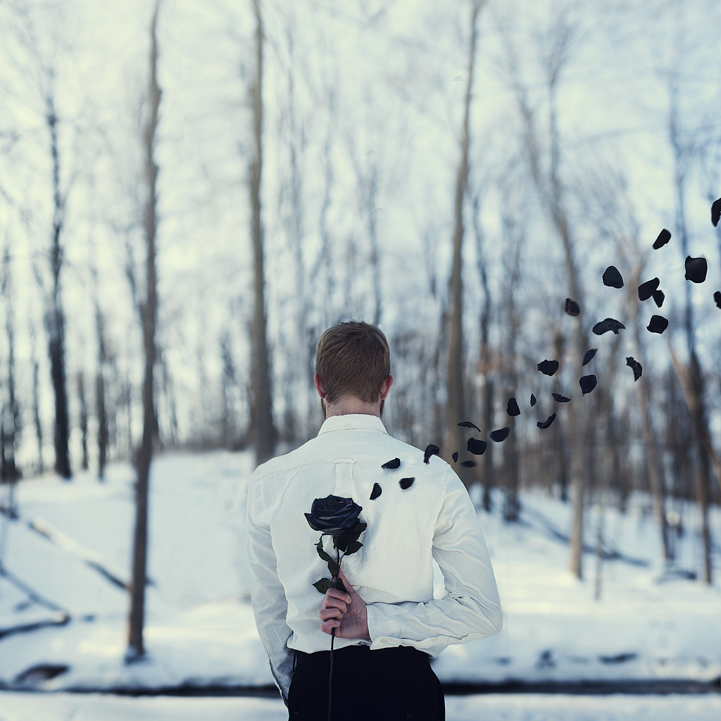
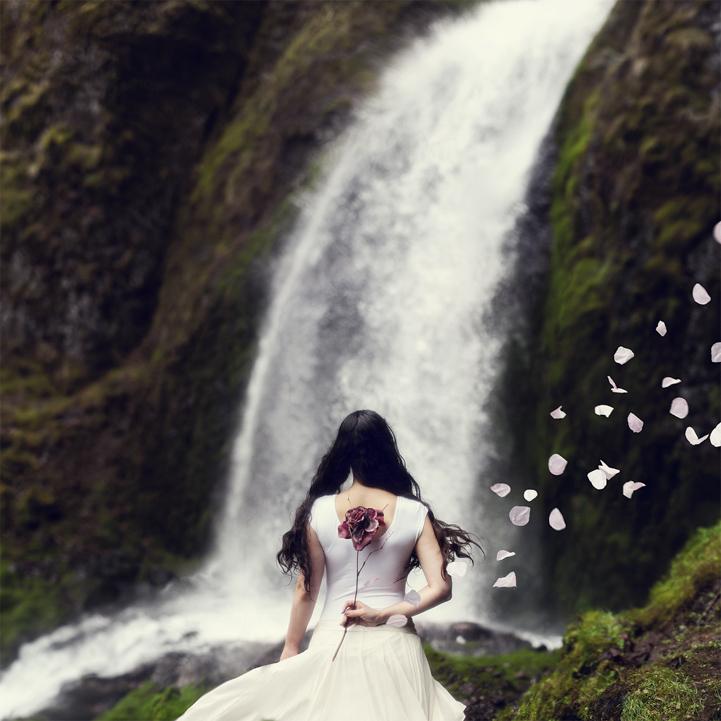
Thank you so much David! If you would like to see more of this talented photographer's work, check out his website and Facebook Page!
If you would like to learn from David at one of his international workshops in Brazil, Italy, or India, you can sign up here. David's workshops are aimed at helping photographers around the world create beautiful, story-driven and portrait work, create an effective business model for their imagery and begin generating revenue with their photos and photography skills by establishing a business, and growing your social media following and community. It is a three-day course geared for both beginners and experts alike, with over thirty hours of instruction and insight into his process.
Are you a photographer? Would you like to be interviewed for the Behind The Lens series? Leave your links in the comment's below!
